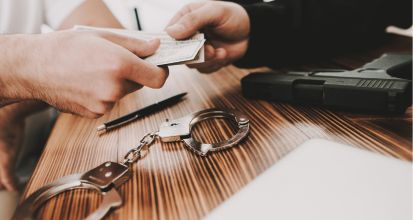 A process called an appeal lets you question a court's decision. You can appeal if you don't agree with the decision made by the magistrate who heard your case. This is done in a higher court, like the County Court. The judge can decide if you were guilty or what punishment or a different order the judge gave you for your crime. You can take the finding and sentence to the County Court.
A process called an appeal lets you question a court's decision. You can appeal if you don't agree with the decision made by the magistrate who heard your case. This is done in a higher court, like the County Court. The judge can decide if you were guilty or what punishment or a different order the judge gave you for your crime. You can take the finding and sentence to the County Court.
It is crucial to talk to appeal case lawyers in Melbourne before you file an appeal. You can ask a lawyer to help you decide if your term was fair. It's possible to think that the decision was very unfair, but that doesn't mean that appealing will help you. Keep in mind that the punishment may be worse.
Time Limits
You can only file an appeal within 28 days after the judge gives you your punishment. It's up to the judge in the County Court to let you challenge the decision if more than 28 days have passed. You need to show the judge:
- There was a very good reason why you didn't file your appeal in time, and
- The delay won't hurt the prosecution's case.
If I'm in jail, what can I do about the papers?
Talk to a lawyer or your agent if you have one before you file an appeal. The jail staff can help you get the "Notice of Appeal" form if you want to start your appeal.
What Will Happen To The Judge's Orders After I File An Appeal?
Most of the judge's orders are put on hold until the appeal is heard if you file an appeal. However, you still have to follow certain orders, such as:
- Going to jail,
- Having your driver's licence suspended or taken away, and
- Registering as a sex offender.
If the judge gave you a jail sentence, you may ask for bail until the appeal hearing. You can also ask the magistrate to let you drive if your licence was taken away or suspended by the magistrate. However, the judge could say no.
When Do I Have To Go To The County Court For The Appeal?
When you file your notice of appeal, the registrar at the Magistrates' Court will tell you when the hearing in the County Court will take place. On that date, be ready to attend your hearing. Talk to a lawyer before then.
Going To Court
When you go to court, you may be checked and screened. Do not bring anything into court that could be used as a weapon, such as a pocketknife, fork, or anything else sharp. Before you go in, check your bag and pockets. It is against the law to bring a weapon to court. If you do, you could be charged and given harsh penalties. If you are out on bail, this may also be against the terms of your bail.
What Takes Place At The Appeal Hearing?
A judge from the County Court will hear the whole case again at the hearing. There's no jury. The prosecution and defence present their evidence again. You could also ask more people to come forward as witnesses. The magistrate will be present.
Even if you pleaded guilty in the Magistrates' Court, you could change your plea and say you are not guilty. On the other hand, the prosecution could argue that your previous guilty plea is evidence of your guilt.
If you plead guilty or are found guilty, the judge can:
- Lessen your sentence, or
- Impose an even harsher sentence than the one the magistrate gave you. Additionally, the judge might issue a no conviction recorded order, meaning you are found guilty but no conviction is recorded, which can lessen the impact on your criminal record.
The judge must inform you if they are considering giving you a harsher sentence. You can then request that your appeal be withdrawn. Statistics show that the judge can give a new sentence, which isn't always good for the person who was charged.
Can I Change The Date Of The Appeal Hearing?
Only if there is a good reason why the appeal hearing can't happen. For instance, you or a family member being in the hospital could be a valid reason. Get in touch with the County Court right away. You will need to go to court and ask the judge to move the hearing to a different time.
Can I Cancel My Appeal Hearing?
It's possible to withdraw your appeal at any time, even on the day of the hearing. Get legal help right away if you want to do this. You need to fill out a form and submit it to the County Court to state that you are withdrawing your appeal. You will still have to appear before a judge if you drop your appeal on the day of the hearing.
After withdrawing your appeal, you must comply with the sentence the magistrate originally gave you. If the magistrate sentenced you to jail and you are out on bail, you will be taken into custody immediately.
Conclusion
An appeal is a way to ask a court to change its mind if you think it was wrong. You only have 28 days to file an appeal after your sentence, so you need to move quickly. Talk to a lawyer before you decide to appeal. They can help you figure out if it's the right thing to do. You might also want to explore if you can get rid of a criminal record in Australia, which involves applying for a spent conviction, depending on the nature of your offence and time elapsed since your conviction. Remember that the appeals process can sometimes lead to a worse sentence, so don't take it lightly. The jail staff can help you with your paperwork if you are in jail. Be ready and follow all the rules when you go to court for your case. Get in touch with the County Court right away if you need to change or cancel your case. You can feel surer about the appeals process if you have the right information and help.


